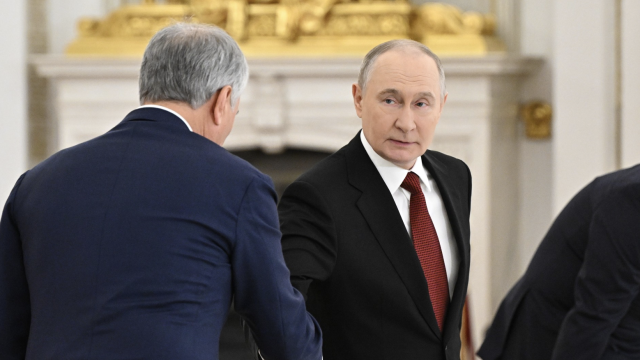MTS's request for Skype to be forced to obtain a license for operating in Russia has been rejected by the Federal Mass Media Inspection Service, Vedomosti reported Wednesday.
Oleg Ivanov, deputy head of the inspection service, said in a letter to Mobile TeleSystems on July 3 that regulating the Skype was "impossible," because the company did not have any offices or subsidiaries in the country.
Even if Skype, which is based in Luxembourg, had a representative office in Russia, its licensing would still be impossible, because the services it provides do not require one, Ivanov added.
A list of services requiring licensing was drawn up by the government in 2005, but the services provided by Skype don't appear on it, the report says.
But German Myzovsky, chief IP-communication engineer at Sipnet said Skype could easily be required to obtain a license for "transferring data for voice communication" in Russia in the same way that other online communication providers do.
Last spring, MTS's vice president for corporate and legal issues Ruslan Ibragimov complained to the inspection service, also known as Roskomnadzor, that over-the-top communications providers like Skype increasingly compete with regular phone operators, but make no financial contribution to telecommunications infrastructure. He asked the regulator to follow Europe's lead and investigate Skype and other IP-telephone companies for their compliance with Russian licensing requirements.
In March 2013, French telecommunications regulators asked prosecutors in Paris to investigate Skype's activities, but so far no conclusion has been reached.
She said MTS had not received the letter from Roskomnadzor yet.
Roskomnadzor's spokesman Vladimir Pikov has declined to comment.
A Message from The Moscow Times:
Dear readers,
We are facing unprecedented challenges. Russia's Prosecutor General's Office has designated The Moscow Times as an "undesirable" organization, criminalizing our work and putting our staff at risk of prosecution. This follows our earlier unjust labeling as a "foreign agent."
These actions are direct attempts to silence independent journalism in Russia. The authorities claim our work "discredits the decisions of the Russian leadership." We see things differently: we strive to provide accurate, unbiased reporting on Russia.
We, the journalists of The Moscow Times, refuse to be silenced. But to continue our work, we need your help.
Your support, no matter how small, makes a world of difference. If you can, please support us monthly starting from just $2. It's quick to set up, and every contribution makes a significant impact.
By supporting The Moscow Times, you're defending open, independent journalism in the face of repression. Thank you for standing with us.
Remind me later.





